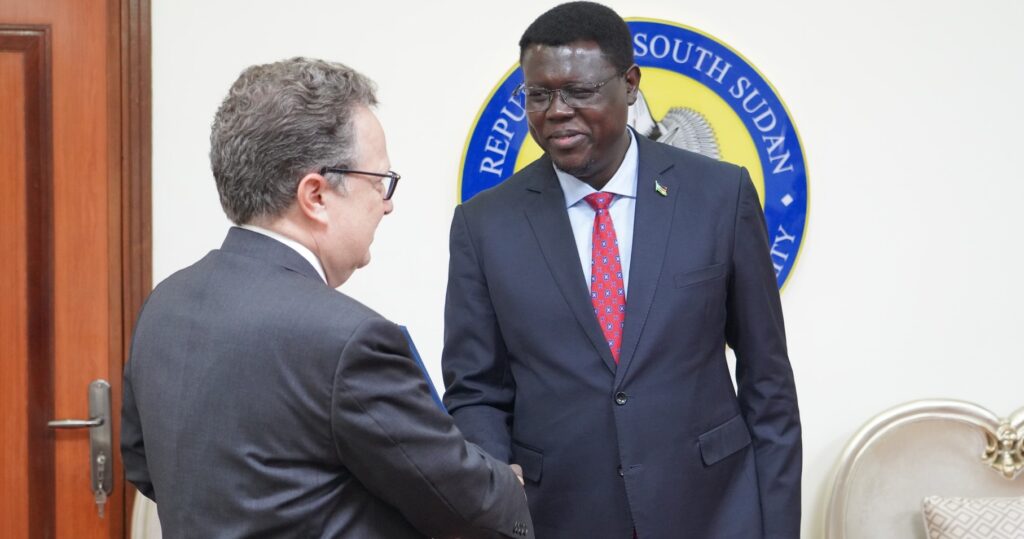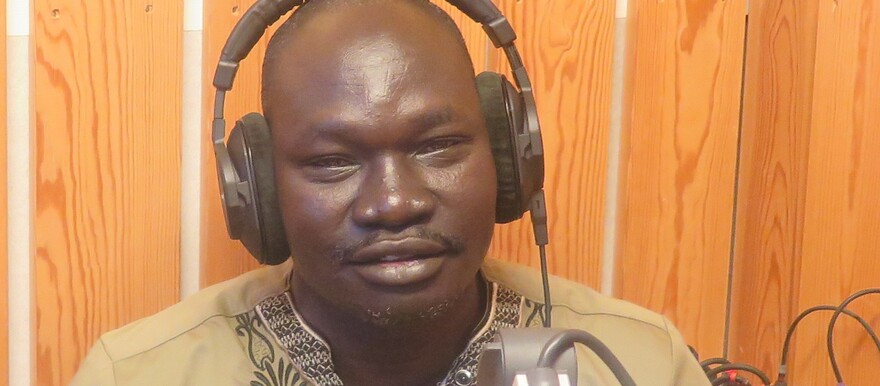A South Sudanese political analyst has warned that the potential closure of the U.S. embassy in Juba would deal a catastrophic blow to the world’s youngest nation.
The U.S. State Department is considering closing dozens of embassies worldwide, including in South Sudan, as part of efforts to significantly reduce its diplomatic presence abroad, according to internal documents.
The proposal follows reports that the Trump administration will ask Congress to cut the State Department and U.S. Agency for International Development (USAID) budget by nearly half, from $54.4 billion to $28.4 billion.
Secretary of State Marco Rubio recently revoked visas for South Sudanese citizens.
Dr. Abraham Kuol Nyuon, an associate professor of international politics, peace, and security at the University of Juba, told Radio Tamazuj on Wednesday that shutting down the U.S. embassy would be a “grievous disaster,” citing Washington’s historical role in supporting South Sudan’s independence through the 2005 Comprehensive Peace Agreement (CPA) and its push for the 2011 referendum.
“If the United States government shuts down its embassy in South Sudan, this will be one of the worst disasters that could happen to the country,” Kuol said. “The U.S. midwifed the peace process and supported the referendum. Reducing diplomatic presence now would risk reversing those gains.”
Kuol said a U.S. withdrawal from Juba would pose two major threats: the loss of critical humanitarian aid and increased political instability due to the potential emboldenment of opposition groups.
“The U.S. is the biggest provider of humanitarian support. If they pull out, services for refugees and internally displaced persons, including healthcare and food aid, will be severely affected,” he said.

He also warned that without U.S. diplomatic leverage, external actors could increase pressure on the South Sudanese government, including possible support for regime change.
The analyst blamed deteriorating relations on poor diplomatic management by South Sudanese officials in Washington, calling it a result of “ignorance and a reactive foreign policy.”
“The current strain in relations is largely due to missteps by the South Sudanese embassy in Washington,” he said. “Instead of taking responsibility, our officials failed to address the matter diplomatically, which has now escalated.”
He said the mismanagement could lead to visa restrictions on South Sudanese nationals, sanctions on senior officials, and regional diplomatic pressure from Kenya, Uganda, and Ethiopia.
Kuol urged President Salva Kiir to intervene personally, suggesting a public statement acknowledging the diplomatic fallout and outlining corrective steps.
“The president needs to come out and say clearly that the souring of relations with the United States was unintended,” Kuol said. “He must show leadership by taking action against those responsible and assuring the U.S. of South Sudan’s continued commitment to partnership.”

While the U.S. may not benefit materially from South Sudan, Kuol noted Washington has an interest in promoting democracy, stability, and international influence, even in smaller states.
“South Sudan plays a role in U.S. global strategy,” he said. “America may not get oil or minerals currently, but aligning South Sudan with democratic values serves their ideological and geopolitical interests.”
He warned that without immediate diplomatic efforts, South Sudan risks deeper isolation at a time when international support remains crucial for peace and development.




